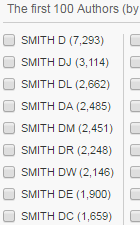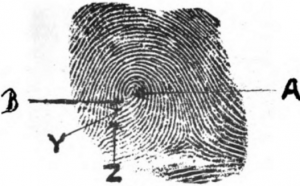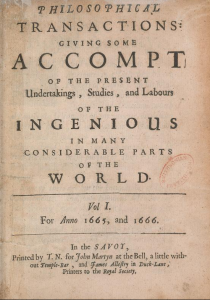FAQ #1: Why do I need an ORCID?
As promised last week, our first Scholar as Author blog post will address the question:
- Why do I need an ORCID?
“Publish or perish” is the realist’s familiar mantra for a career in academe. Whether you consider the tasks of publishing and presenting at conferences to be among the finest of sports on the one hand, or as most arduous torture on the other, as faculty you are evaluated both quantitatively and qualitatively by what you write, in particular by your journal publications. By collective extension, your department, your college, and even the university as a whole are all likewise judged (and to some extent accredited) in part thanks to the publications we produce as a greater team of individual colleagues.
Who are you? (Initial concerns) 
So, with all that is at stake and with all the effort expended to get published, who would not want to get full credit for their complete body of work? Clearly, to track this amount of writing comprehensively requires standard tools across the community. Traditionally, there have been two credible sources for this sort of large-scale scholarly citation tracking: Thomson-Reuters (with Web of Science [WoS]) and Elsevier (with Scopus). Now if you’ve tried to find all of your work in either or both of these sources, you may have noticed lacunæ in their record-keeping. It would not be uncommon to find your things scattered across several variants of your name in different spots, including the case of your mere first initial attempting to hold forth among competing identities. So, the situation was crying out for unique, universal, personal identifiers. Admittedly, Scopus has its Scopus Author ID and WoS has its ResearcherID, but the point is that these did not talk to each other.
ORCID wants you to just be yourself
Enter the Open Researcher and Contributor ID, or ORCID: create a free ORCID account today and you can account for and control your oeuvre’s listing comprehensively, including interacting with your ResearcherID and Scopus Author ID. An ORCID is like your authoring fingerprint, a unique identifier that can capture all of your publications in one place, in addition to education, employment, and grants. ORCID spans the globe, all the scholarly disciplines, and even format types. You may list not only your articles, but also datasets you have deposited in a repository like Dryad, code you have in github, or posters or presentations we’ve added to the Scholarship Repository at FIT. If you haven’t already, in the future you may be asked for your ORCID as you submit publications and grant applications. You could also list and link your GoogleScholar, ResearchGate, Academia.edu, Mendeley, LinkedIn, FIT, or any other profile page you wish. In addition, you decide what you make visible on the ORCID site, but I would caution against hiding too much; at a bare minimum, you should reveal your current affiliation or the identification purpose is not well-served. Finally, since some have asked, we should note that ORCID does not have an impact metrics reporting feature, but stay tuned to this blog for discussion of this topic in the future.
In academia, you (and your institution) are what you write, so be sure to get your ORCID and let others know who you are and what you’ve accomplished. Your Evans Library contacts stand ready to assist you, so please let us know if you have questions! You might just dive in here:
Until next week! We are happy to address your scholarly authoring questions, which you may email to me.
Image credits:
- https://archive.org/details/Philosophicaltr1Roya , cover page
- http://apps.webofknowledge.com.portal.lib.fit.edu/RAMore.do?product=WOS&search_mode=GeneralSearch&SID=1AW6iCUqrTg2EYbzupQ&qid=9&ra_mode=more&ra_name=Author&colName=WOS&viewType=raMore
- http://catalog.hathitrust.org/Record/008675878 , p. 18






